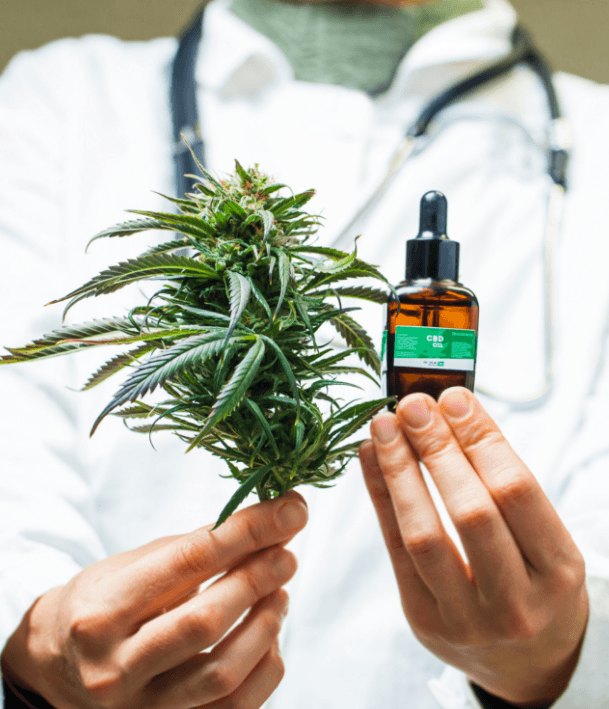The Next Generation Nicotine Delivery (NGND) conference in Miami delivered an energetic and insightful dialogue on the future of reduced-risk products in the U.S. and beyond. With the FDA’s direction...
What next for U.S. CBD Regulations and will history repeat itself?
Cannabinoids

Jan 10, 2023 | Published by Broughton
Cannabinoids
Broughton takes a look at the FDA’s recent announcement that it is developing a regulatory assessment for CBD products in the U.S.
At the end of December, the U.S. Food and Drug Administration (FDA) announced it is developing a regulatory assessment for hemp-derived products such as CBD.
In an interview with the Wall Street Journal, Janet Woodcock, the FDA's Principal Deputy Commissioner and leader of the agency's cannabis regulation efforts, expressed concerns about the safety of CBD and whether current regulatory pathways for food and dietary supplements are suitable for the substance.
"Given what we know about the safety of CBD so far, it raises concerns for FDA about whether these existing regulatory pathways for food and dietary supplements are appropriate for this substance." - Janet Woodcock.
The FDA is especially interested in determining whether it is safe to consume CBD daily for extended periods or during pregnancy. While Woodcock raised concerns about potential effects on fertility, her comments indicated that the agency is working to establish regulatory frameworks for legalizing appropriate cannabis and cannabis-derived products.
In the article, Woodcock stated that the FDA would review the available evidence on cannabis and decide later in 2023 on how to regulate CBD and other novel cannabinoids. This decision may involve new agency rules or the need for new legislation from Congress: CBD is a chemical compound found in cannabis plants that are believed to have health benefits and is often sold as a dietary supplement. While the 2018 Farm Bill legalized hemp cultivation in the U.S., leading to significant growth in the CBD market, the FDA has not approved any CBD products as dietary supplements.
Recently, the FDA has taken a stance against the sale of CBD products due to a lack of scientific evidence regarding their safety. The announcement indicating the agency is now developing a regulatory assessment for hemp-derived products should indicate to manufacturers that changes to the status quo are highly likely. To some extent, the recent FDA announcement has similarities to the CBD regulatory landscape in the European Union (E.U.) and the United Kingdom (U.K.), where consumer CBD has been classified as a novel food. According to E.U. and U.K. novel food regulations, any novel food must undergo a safety assessment before it can be sold. Novel food regulations cover CBD-based edibles such as oils, gummies, and capsules.
To sell CBD as a novel food in the E.U. or U.K., companies must first submit a novel food application to the European Food Safety Authority (EFSA) or the U.K.'s Food Standards Agency (FSA). Although the novel food regulation provides a route to market for edible consumer CBD products, it has been two years since the deadline for CBD companies to apply for novel foods authorization, and none have yet been authorized. A process that some experts say is causing the CBD market in the region to stagnate (CBD-intel.com, 2022). The situation has led to uncertainty for manufacturers as their products face a long wait for regulatory approval. However, if they have been validated by 30 June 2022, they can continue to be sold to consumers while the authorization process is in progress.
After receiving numerous applications for CBD as a novel food, the European Commission requested that the EFSA provide its opinion on the safety of CBD for human consumption. At the end of summer 2022, the European Food Safety Authority (EFSA) announced that it was unable to determine the safety of cannabidiol (CBD) as a novel food at this time due to the lack of data and uncertainties about potential risks associated with consumer CBD intake. The EFSA's Nutrition, Novel Foods and Food Allergens (NDA) expert panel had received 19 applications for CBD as a novel food, with more expected. They concluded that there was currently insufficient data on the effects of CBD on the liver, gastrointestinal tract, endocrine system, nervous system, and psychological well-being in these applications.
It will be interesting to see if the CBD regulatory process in the U.S. follows a similar route to that witnessed in the E.U. and the U.K.. Our initial thought is that it will take longer than a matter of months for a new U.S. regulatory assessment for CBD to be made public. It took several years for the FDA to finalize the Premarket Tobacco Product Application (PMTA) regulatory process before manufacturers with products on the market were given over two years to submit retrospective applications. Even now, thousands of PMTA applications are still pending FDA decisions. The industry has seen millions of denial orders but only a few marketing authorizations.
Although our experience suggests it will probably take time for new CBD regulations to come into force in the U.S., we would still advise any manufacturer with products on the U.S. market or plans to sell there in the future to start preparing now. Our advice would be to start data collection programs around ingredients, product manufacturing processes, marketing claims, and design projects to gather real-world data from existing customers to support future regulatory submissions.
The regulator's role is always to protect the consumer. FDA won't be distracted by concerns about the impact on industry growth and business investments. They will focus on a manufacturer's insight into their product and its efficacy, quality, and safety. CBD companies who want to understand how important it is to start planning now for future regulations only need to look at the impact of FDA PMTA regulations on the U.S. vape market.


